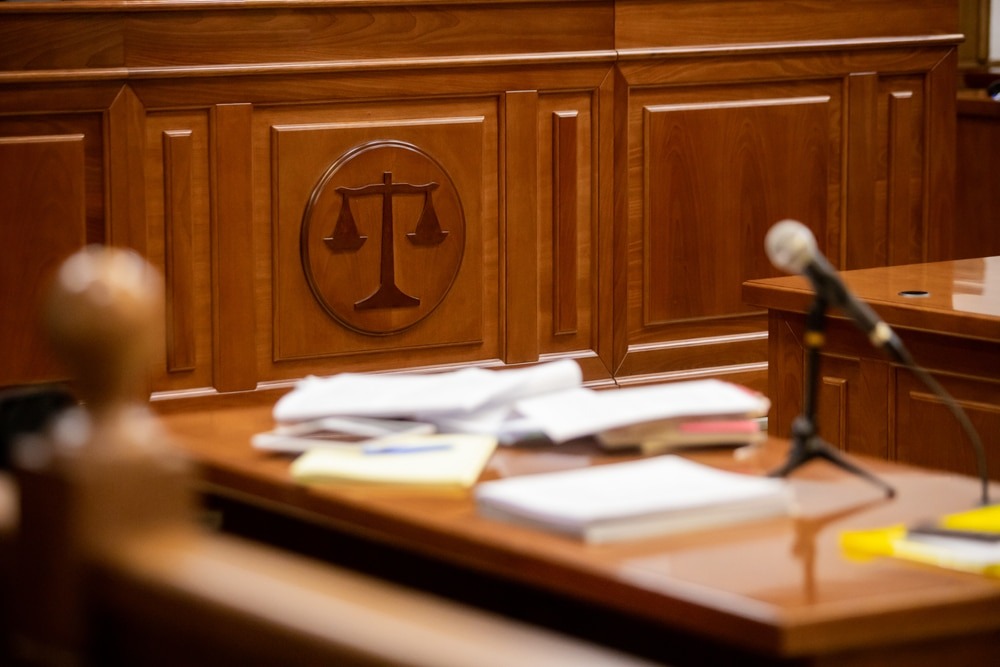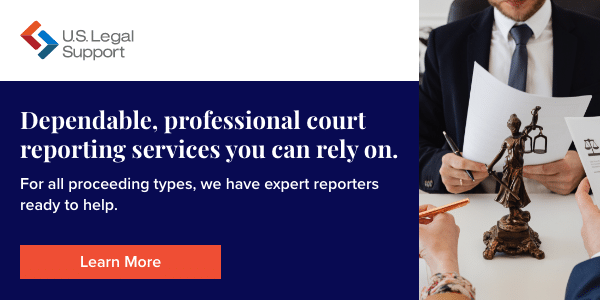Witness Coaching vs. Preparation

The line between ethical witness preparation and unethical coaching is somewhere between ensuring a witness doesn’t show up unprepared for a legal proceeding and putting words in their mouth. Incorporating a solid trial strategy is essential in striking this balance.
It can be a tricky distinction, particularly when dealing with witnesses who are forgetful, disorganized, or otherwise challenging to work with. But there are clear guidelines to help you stay within the bounds of preparation vs. witness coaching—we’ll break these down in this guide.
What Is Witness Coaching?
Let’s start with what not to do before exploring appropriate witness prep. According to a detailed report by the American Bar Association’s Standing Committee on Ethics and Professional Responsibility (Formal Opinion 508), unethical witness coaching actions include1:
- Assisting or influencing a witness in any way to give false testimony
- Advising a client or witness to disobey court orders
- Offering any unlawful inducement to a witness to steer their testimony or behavior
- Arranging or contributing to a witness’s absence from a legal proceeding
- Advising deceit related to the degree or nature of the witness preparation
- Crafting objections or questions to coach specific answers during cross-examination
One of the most common errors is coaching on breaks or even during a trial or deposition, verbally, through texting, or via other interfaces. Though hardly logical, lawyers have been caught instructing their clients on what to say, or even to lie, directly after being warned against it by a judge and even in situations and locations where their improper coaching has been recorded. This type of deposition misconduct undermines the legal process.
Witness coaching can be considered fraud against the court and a violation of licensing bodies’ attorney mandates. Sanctions can include2,3:
- Mistrials and dismissals with prejudice
- Payment of the opponent’s legal fees and costs
- Public reprimand by the oversight bar and the potential for damage to reputation
- Discipline, including license suspension
- Removal from the case, leading to loss of legal fee plus unpaid training of replacements
What Is Witness Preparation?
Legitimate witness preparation works toward an outcome of truthful witness testimony that supports your case and educates witnesses on what to expect and how to present themselves during legal proceedings. Key discussions include:
- Question the questions – Instruct witnesses to listen to the question in full (and have heard it clearly) before answering, ask for a repeat of the question, or say they don’t understand the question and request it be rephrased or clarified.
- Dress the part – Witnesses can’t go wrong with neutral, conservative, and business formal garb with minimal accessories and adornment. Plan outfits and self-presentation to be physically and situationally comfortable.
- Stay calm – Regardless of the setting, encourage witnesses to start and stay calm and patient throughout. Emotion can be shown where appropriate, but irritability, sarcasm, and anger directed at the court or attorneys will cloud their ability to testify effectively and diminish the jury’s willingness to accept the witness testimony.
Witness Preparation for Deposition
With only 5% of civil matters, 6% of state felony convictions, and 3% of federal criminal convictions ending in the courtroom vs. in a settlement, depositions are where most legal outcomes are truly determined.4,5
Ensure your witnesses understand the importance of the deposition, how they should proceed, and what rules are different than in court proceedings. Preparation (vs. coaching) can also cover:
- Brevity – Deposing counsel is still at the fact-collecting stage during depositions and taking note of how witnesses perform under pressure. Deponents should limit answers to exactly match the question—if it’s a yes or no question, then a single word. If the answer is “it depends,” then say that and nothing more.
- Wariness – Make sure your witness knows to stay on guard. It doesn’t matter if they’re chatting in a coffee room during a break, there’s no “off the record” small talk that can’t be introduced as soon as the deposition resumes. This is no time to make friends, trade jokes, or respond to sympathetic inquiries.
- Document review – If asked to respond to any written documents—whether it’s written by the witness, industry literature, or a medical file—instruct witnesses to take their time reading it first. They’re free to state they cannot respond to a question without carefully reading the material first—they shouldn’t feel pressured to answer after only a quick scan or be expected to have memorized relevant documents.
Partner with the Leaders in Trial Services Support
For nearly 30 years, attorneys of all practice sizes and types nationwide have relied on U.S. Legal Support for trial and litigation support services.
Today, our TrialQuest division is uniquely positioned with the expertise and experience to support your witness preparation needs, voir dire, jury research and consulting, and other trial services.
Contact us today to discuss your witness prep and other litigation consulting and legal support needs.
Sources:
- Los Angeles County Bar Association. Ethical Witness Preparation and Unethical Witness Coaching: The ABA Weighs in on the Good, the Bad, and the Ugly – LACBA News. https://lacba.org/?pg=lacba-news&blAction=showEntry&blogEntry=103927
- Brach Eichler LLC. Witness Coaching – A Prohibited Practice That Carries Significant Consequences for Both Attorney and Client. https://www.bracheichler.com/insights/witness-coaching-a-prohibited-practice-that-carries-significant-consequences-for-both-attorney-and-client/
- Freeman Mathis & Gary, LLP. Massachusetts lawyer receives public reprimand for witness coaching at remote deposition. https://www.fmglaw.com/professional-liability/massachusetts-lawyer-receives-public-reprimand-for-witness-coaching-at-remote-deposition/
- The Outline. Most criminal cases end in plea bargains, not trials. https://theoutline.com/post/2066/most-criminal-cases-end-in-plea-bargains-not-trials
- The Law Dictionary. What Percentage of Lawsuits Settle Before Trial? What Are Some Statistics on Personal Injury Settlements? https://thelawdictionary.org/article/what-percentage-of-lawsuits-settle-before-trial-what-are-some-statistics-on-personal-injury-settlements/

Editoral Policy
Content published on the U.S. Legal Support blog is reviewed by professionals in the legal and litigation support services field to help ensure accurate information. The information provided in this blog is for informational purposes only and should not be construed as legal advice for attorneys or clients.


